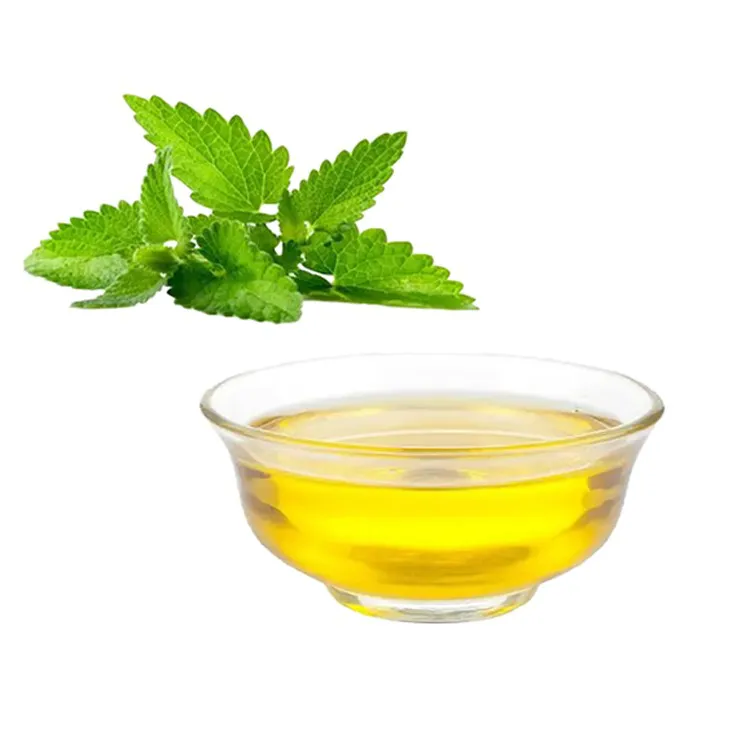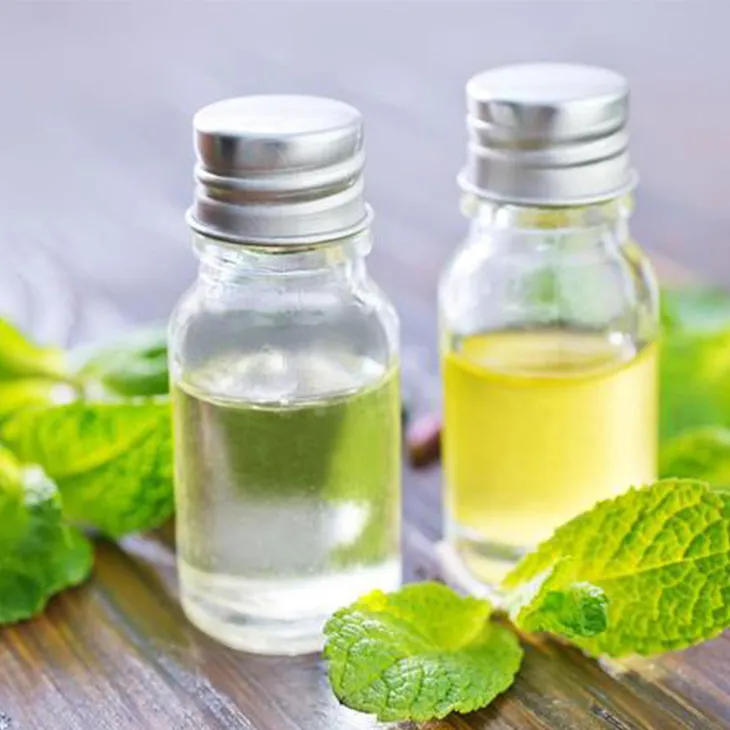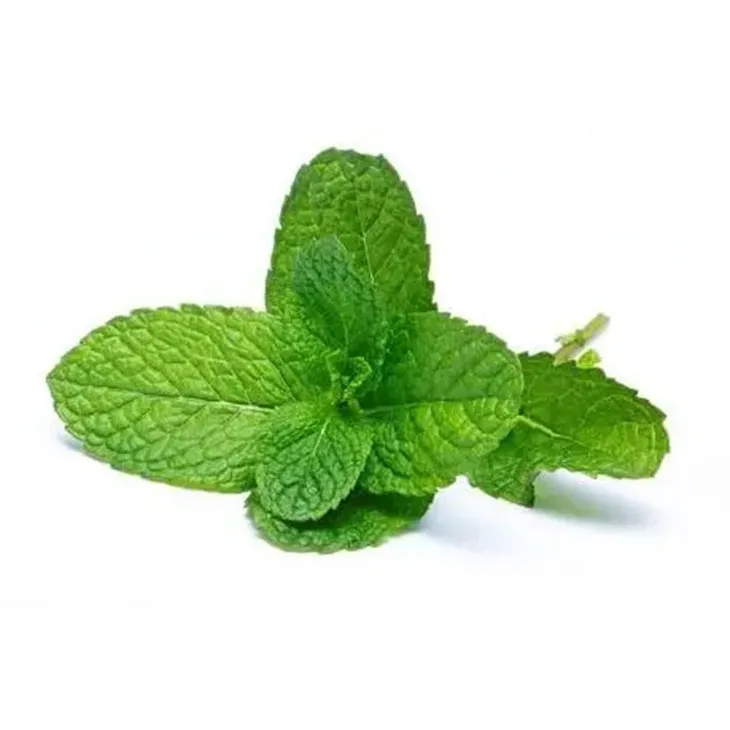- 0086-571-85302990
- sales@greenskybio.com
Peppermint Oil Supplier
2024-11-28

1. Introduction
Mint oil, especially Peppermint Oil, has a wide range of applications in various industries such as food, cosmetics, and pharmaceuticals. As a result, the role of mint oil suppliers is becoming increasingly important in the global market. Suppliers are not just providers of a product; they are key players in ensuring the quality, availability, and sustainability of Peppermint Oil.

2. Production Capacity
2.1 Meeting Market Demands
The production capacity of a mint oil supplier is a crucial factor. A large - scale supplier has the advantage of being able to meet the demands of different types of buyers. For small - scale buyers, such as local food producers or small - scale cosmetic companies, they can provide relatively small quantities of Peppermint Oil without sacrificing quality. For large - scale buyers, like multinational food and beverage corporations or major pharmaceutical companies, a large - scale supplier can ensure a continuous and sufficient supply.
2.2 State - of - the - Art Facilities
Many large - scale mint oil suppliers are often equipped with advanced facilities. In the case of those involved in mint cultivation, they may have modern farms with automated irrigation systems, precise climate control, and efficient pest management. These facilities help to ensure the healthy growth of mint plants, which is the first step in obtaining high - quality peppermint oil. For the extraction process, they may use state - of - the - art extraction equipment. For example, some suppliers use supercritical fluid extraction technology, which can extract peppermint oil with high purity and minimal damage to the active ingredients.

3. Sustainability
3.1 Environmentally Friendly Farming
Sustainability is an emerging and important aspect in the selection of a mint oil supplier. A good supplier should be committed to environmentally friendly farming methods. Organic farming is one such approach. In organic mint farming, the use of synthetic pesticides and fertilizers is prohibited. Instead, natural methods such as crop rotation, the use of compost, and biological pest control are employed. This not only reduces the environmental impact but also results in a more natural and pure peppermint oil product.
3.2 Waste Reduction in Extraction
During the extraction process, a sustainable mint oil supplier will focus on reducing waste. They may implement closed - loop extraction systems, where the solvents used in extraction can be recycled and reused. This reduces the amount of waste generated and also lowers the cost of production. Additionally, by optimizing the extraction process, they can ensure that a maximum amount of peppermint oil is extracted from the mint plants, minimizing the waste of raw materials.
3.3 Promoting Long - Term Viability of Mint Cultivation
Suppliers also play a role in promoting the long - term viability of mint cultivation. This includes activities such as soil conservation, water management, and the preservation of native mint species. For soil conservation, they may practice no - till farming or use cover crops to prevent soil erosion. In terms of water management, they may use drip irrigation systems to conserve water. By preserving native mint species, they can help maintain the genetic diversity of mint, which is important for the long - term health and adaptability of mint plants.

4. Innovation
4.1 Research and Development
Innovation is another key factor when considering a mint oil supplier. Suppliers who invest in research and development are more likely to offer unique products. They may conduct research on different mint varieties to find those with higher oil content or better aroma. For example, some suppliers are exploring rare mint species that have unique chemical compositions, which could lead to the development of new and exclusive peppermint oil products.
4.2 New Blends and Applications
Innovation also involves the development of new blends of peppermint oil. A supplier may combine peppermint oil with other essential oils such as lavender or eucalyptus to create unique scents and therapeutic properties. In terms of applications, they may find new uses for peppermint oil in industries such as biotechnology or environmental protection. For instance, some research is being done on the use of peppermint oil as a natural biocide in the treatment of water or as an ingredient in biodegradable plastics.

5. Transparency in the Supply Chain
5.1 Tracing the Origin
Transparency in the supply chain is essential for buyers of peppermint oil. Buyers should be able to trace the origin of the peppermint oil they purchase. This includes knowing where the mint plants were grown, whether it was in a single region or multiple regions. A transparent supplier will provide detailed information about the origin of the mint, such as the geographical coordinates of the farms, the climate conditions of the area, and any certifications related to the origin, like geographical indication labels.
5.2 Production Processes
Buyers also need to know about the production processes involved in obtaining peppermint oil. This includes details about the cultivation methods, such as the type of fertilizers and pesticides used (if any), the harvesting techniques, and the extraction methods. A reliable supplier will be open about these processes, allowing buyers to assess the quality and safety of the peppermint oil. For example, if a supplier uses a particular extraction method that is known for its high efficiency but also requires careful handling to ensure the purity of the oil, they should disclose this information to the buyers.
5.3 Fair Trade Practices
Ensuring fair trade practices is another aspect of supply chain transparency. A good mint oil supplier will ensure that farmers and workers involved in the production process are treated fairly. This includes providing fair wages, safe working conditions, and proper training. Suppliers should also be committed to ethical sourcing, which means not engaging in activities such as child labor or forced labor. By demonstrating their commitment to fair trade practices, suppliers can build trust with their customers.
6. Conclusion
In conclusion, when looking for a peppermint oil supplier, it is important to consider multiple aspects. Production capacity, sustainability, innovation, and transparency in the supply chain are all key factors. A supplier that excels in these areas will not only be able to meet the market demands but also contribute to the long - term development of the peppermint oil industry. As the market for peppermint oil continues to grow, both suppliers and buyers need to work together to ensure a sustainable, innovative, and transparent supply chain.
FAQ:
What factors should be considered when choosing a peppermint oil supplier?
When choosing a peppermint oil supplier, several factors should be considered. Firstly, production capacity is important. A large - scale supplier can meet the demands of different - sized buyers and is often equipped with advanced facilities for mint cultivation and extraction. Secondly, sustainability is crucial. A good supplier should use environmentally friendly farming methods, reduce waste during extraction, and promote the long - term viability of mint cultivation. Innovation is also a key factor. Suppliers investing in research and development are more likely to offer unique products. Finally, transparency in the supply chain is essential. Buyers should be able to trace the origin of the peppermint oil and know about the production processes.
How can a peppermint oil supplier ensure sustainability?
A peppermint oil supplier can ensure sustainability in several ways. They can use environmentally friendly farming methods such as organic farming. This reduces the impact on the environment. During the extraction process, they can take measures to reduce waste. Also, they can promote the long - term viability of mint cultivation, for example, by rotating crops properly and using sustainable irrigation methods.
What are the benefits of a supplier investing in research and development?
When a peppermint oil supplier invests in research and development, there are several benefits. They can develop new blends of peppermint oil, which can attract more customers. They may also find novel applications for peppermint oil, expanding its market. This innovation gives them a competitive edge in the market and helps them meet the changing demands of customers.
Why is transparency in the supply chain important for a peppermint oil supplier?
Transparency in the supply chain is important for a peppermint oil supplier for multiple reasons. Firstly, it allows buyers to trace the origin of the peppermint oil. This gives them confidence in the quality and authenticity of the product. Secondly, they can know about the production processes, ensuring that they are ethical and meet certain standards. It also helps to ensure fair trade practices, which is important for building long - term relationships with customers.
How can a large - scale peppermint oil supplier meet the demands of small - scale buyers?
A large - scale peppermint oil supplier can meet the demands of small - scale buyers by having flexible production and distribution systems. They can offer smaller quantities of peppermint oil to small - scale buyers while still maintaining their large - scale production capabilities. They can also provide personalized services and support to small - scale buyers, such as providing product information and advice.
Related literature
- Peppermint Oil Production and Quality Standards"
- "The Global Market for Peppermint Oil: Trends and Suppliers"
- "Sustainable Practices in Peppermint Oil Supply Chains"
- ▶ Hesperidin
- ▶ citrus bioflavonoids
- ▶ plant extract
- ▶ lycopene
- ▶ Diosmin
- ▶ Grape seed extract
- ▶ Sea buckthorn Juice Powder
- ▶ Beetroot powder
- ▶ Hops Extract
- ▶ Artichoke Extract
- ▶ Reishi mushroom extract
- ▶ Astaxanthin
- ▶ Green Tea Extract
- ▶ Curcumin Extract
- ▶ Horse Chestnut Extract
- ▶ Other Problems
- ▶ Boswellia Serrata Extract
- ▶ Resveratrol Extract
- ▶ Marigold Extract
- ▶ Grape Leaf Extract
- ▶ blog3
- ▶ blog4
-
Nature's best vitamin D3.
2024-11-28
-
The best velvet antlers in 2024.
2024-11-28
-
Cat Claw Extract
2024-11-28
-
Centella Asiatica Extract
2024-11-28
-
Peppermint Extract Powder
2024-11-28
-
Alisma Extract
2024-11-28
-
White mustard seed extract
2024-11-28
-
Moringa powder
2024-11-28
-
Mangosteen extract powder
2024-11-28
-
Sophora Flavescens Root Extract
2024-11-28
-
Sea buckthorn Juice Powder
2024-11-28
-
Astaxanthin
2024-11-28





















